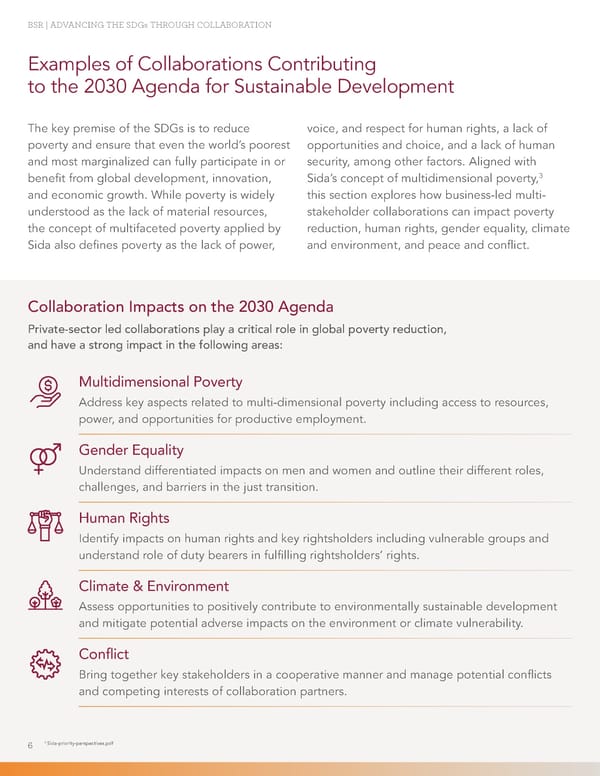BSR | ADVANCING THE SDGs THROUGH COLLABORATION Examples of Collaborations Contributing to the 2030 Agenda for Sustainable Development The key premise of the SDGs is to reduce voice, and respect for human rights, a lack of poverty and ensure that even the world’s poorest opportunities and choice, and a lack of human and most marginalized can fully participate in or security, among other factors. Aligned with 3 bene昀椀t from global development, innovation, Sida’s concept of multidimensional poverty, and economic growth. While poverty is widely this section explores how business-led multi- understood as the lack of material resources, stakeholder collaborations can impact poverty the concept of multifaceted poverty applied by reduction, human rights, gender equality, climate Sida also de昀椀nes poverty as the lack of power, and environment, and peace and con昀氀ict. Collaboration Impacts on the 2030 Agenda Private-sector led collaborations play a critical role in global poverty reduction, and have a strong impact in the following areas: Multidimensional Poverty Address key aspects related to multi-dimensional poverty including access to resources, power, and opportunities for productive employment. Gender Equality Understand differentiated impacts on men and women and outline their different roles, challenges, and barriers in the just transition. Human Rights Identify impacts on human rights and key rightsholders including vulnerable groups and understand role of duty bearers in ful昀椀lling rightsholders’ rights. Climate & Environment Assess opportunities to positively contribute to environmentally sustainable development and mitigate potential adverse impacts on the environment or climate vulnerability. Con昀氀ict Bring together key stakeholders in a cooperative manner and manage potential con昀氀icts and competing interests of collaboration partners. 6 3 Sida-priority-perspectives.pdf
 Advancing the SDGs through Collaboration Page 5 Page 7
Advancing the SDGs through Collaboration Page 5 Page 7